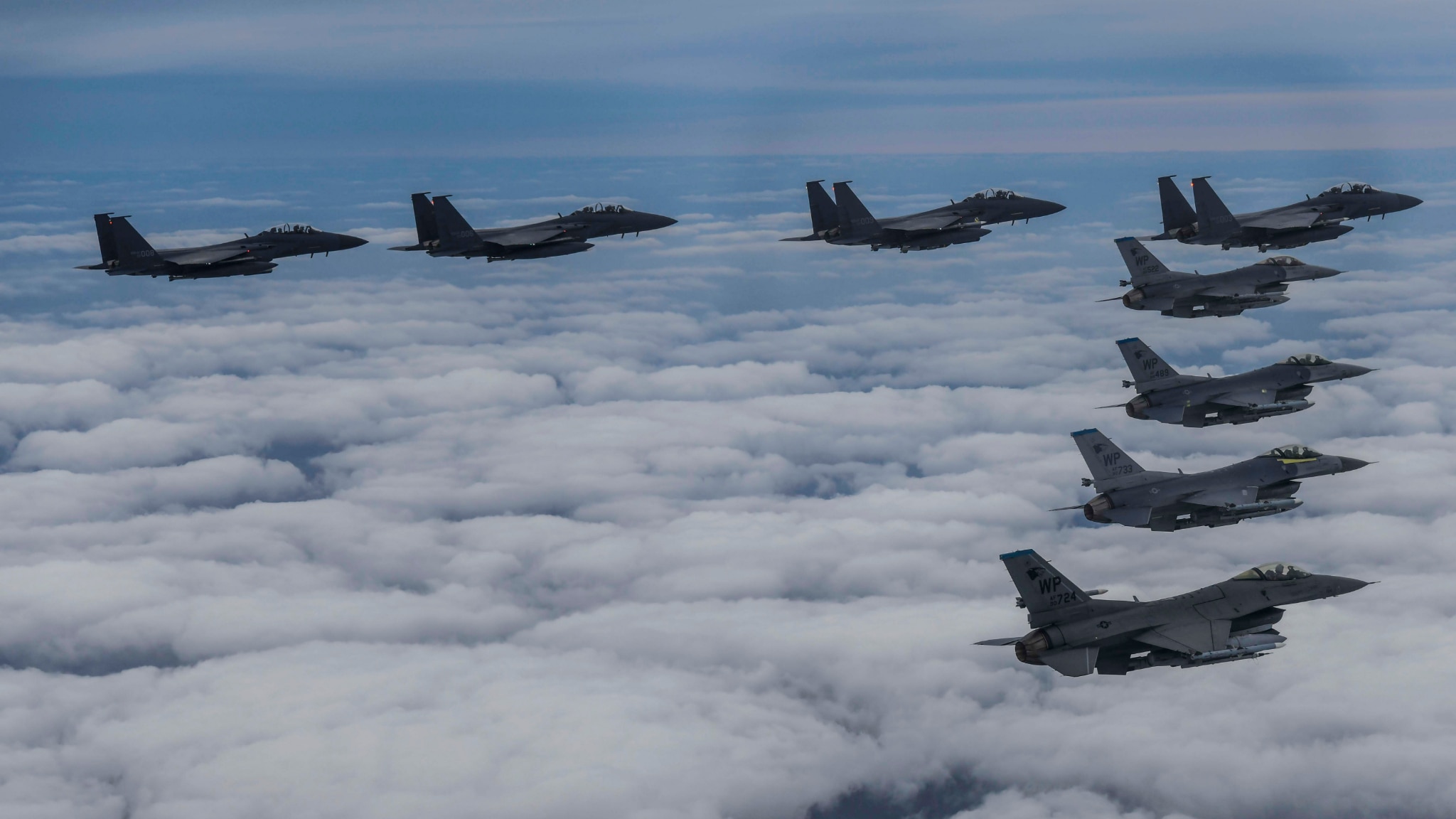Twelve North Korean military planes flew in formation today in an apparent exercise north of the border between the two Koreas.
In response, the South Korean military took off 30 fighter jets.
According to the Seoul General Staff, eight fighter jets and four bombers "staged formation flight north of the inter-Korean air border and are thought to have conducted air-to-surface fire drills."
Tension remains high on the Korean peninsula and the Pacific after Pyongyang's repeated missile launches that have intensified in recent days.
Last time just today: two SRBMs, that is, short-range ballistic missiles.
Both missiles - according to reports from the Japanese Defense Minister Yasukazu Hamada, did not sink into the Japanese Special Economic Zone.
The issue was the main theme of the telephone conversation between Japanese Prime Minister Fumio Kishida and South Korean President Yoon Suk-yeol who condemned "forcefully" the recent launches of ballistic missiles by North Korea.
Yoon and Kishida, South Korean deputy presidential spokesman Lee Jae-myoung said in a note quoted by the South Korean news agency Yonhap, called the launches "serious and serious provocative acts that threaten peace and security not only in the peninsula. Korean, but also in Northeast Asia and in the international community "and they agreed to" work together to respond severely "to North Korea.
The two Asian leaders, in their first telephone conversation, also agreed that Pyongyang's "reckless provocations" must be stopped and that the clear message must be sent to Pyongyang that "provocations will have consequences".
North Korea has carried out six missile tests in the past twelve days, including the launch last Tuesday of an intermediate-range ballistic missile, which flew over Japan making the longest route ever traveled by a missile launched from Pyongyang, about 4,600 kilometers at an altitude of one thousand kilometers, before sinking into the Pacific Ocean 22 minutes after launch.
The North Korean launches also come after the conclusion of maritime exercises between the naval group led by the large US aircraft carrier Ronald Reagan and units of the South Korean navy.
The Reagan, among other things, has just returned to South Korean waters to lead another exercise, which this time will also involve Japanese units, for maneuvers dedicated to submarine warfare.
Since the beginning of the year, the Kim Jong Un regime has carried out at least twenty launches, involving just under 40 missiles.
The issue was also discussed at a meeting of the UN Security Council called urgently at the request of several countries.
But no consensus emerged around a condemnation, because Russia and China accused the United States and its allies of provoking Pyongyang with their own military exercises.

